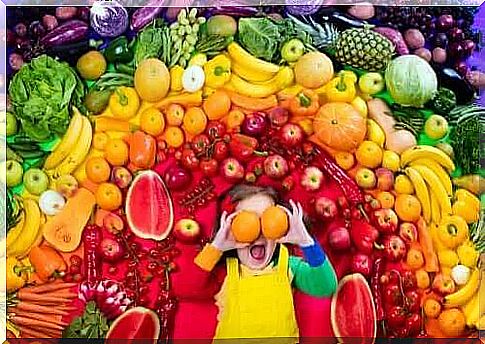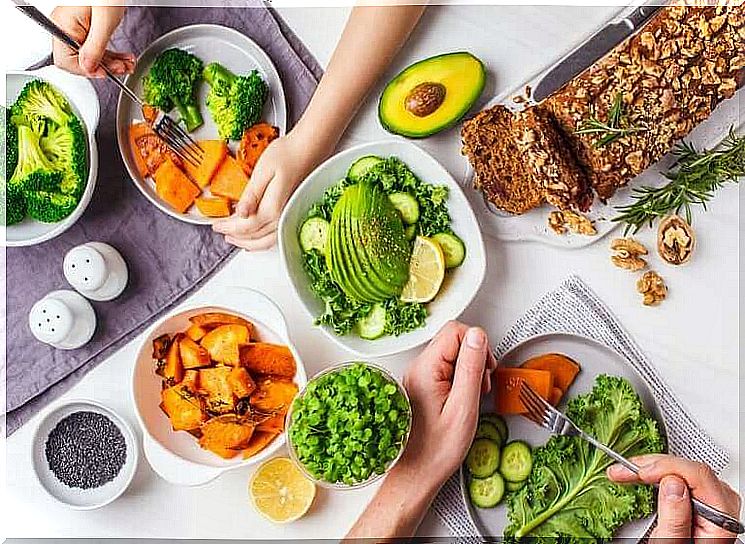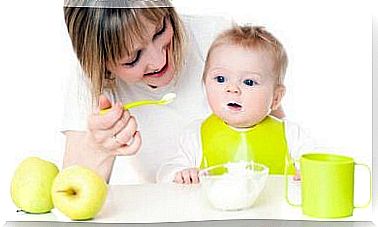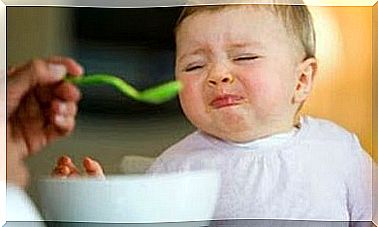Is A Vegetarian Diet Healthy For Children?

If your child has made the decision to become a vegetarian and you are wondering whether a vegetarian diet is healthy for children, you should read today’s article. We’ll tell you if this type of diet is also suitable for children. You will also learn what to look out for in this meatless diet.
What exactly is a vegetarian diet?
First of all, we need to understand what a vegetarian diet is and what defines it. In addition, you should clarify with your offspring which specific diet your child has chosen.
There are different forms of meatless diets. In today’s article, we’re going to focus on the two most common forms: the vegan and the vegetarian diet.
If you follow a vegetarian diet, you won’t eat meat or fish. However, vegetarians typically eat dairy products, eggs, and other foods of animal origin.
This is different with the vegan diet. This is also known as a strict vegetarian diet and with this form no products of animal origin are consumed.
Why do people become vegetarians?
There are very different reasons why people choose to be vegetarian or vegan. The most common reasons are respect for animals, environmental awareness and health reasons.

Even if your child has decided to change their diet, you shouldn’t worry too much about it. We encourage you to talk to your child about their motivations. It is also important that you get more information about this type of diet and get advice from a nutritionist. This will give you all the information you need and ensure that your child continues to receive all the nutrients they need.
Is a vegetarian diet suitable for children?
According to the American Academy of Nutrition and Dietetics , a vegetarian diet is suitable for all phases of life. This also includes pregnancy, breastfeeding, childhood, adolescence and adulthood. In addition, this form of nutrition is also suitable for athletes.
However, as with a meat-based diet, it is important that you choose the foods carefully and put together the menu well and balanced.
In addition, you should also consider your child’s individual needs. If you follow these simple guidelines, then a vegan or vegetarian diet is not only very appropriate, but it can also offer numerous health benefits.
It can be very helpful in preventing or treating certain medical conditions.
Can a vegetarian diet lead to nutritional deficiencies?
As long as you make the diet varied and balanced, your child should be supplied with all the necessary nutrients in sufficient quantities. Nevertheless, there are some micronutrients such as iron, omega-3 fatty acids and especially vitamin B12 that you should pay more attention to.
Vitamin B12
Vitamin B12, also known as cyanocobalamin , is only found in animal foods: meat, fish, eggs, and dairy products. Therefore, it is very important that vegans take a vitamin B12 supplement.
If your child follows a vegetarian diet, you can ensure the supply of vitamin B12 by consuming milk and eggs. However, it is not always easy to actually achieve the recommended amount of nutrients in this way. Therefore, a dietary supplement with vitamin B12 is also recommended as a precautionary measure.
iron
Since iron is not only found in animal products, vegetarians can also cover their iron needs with pulses, seeds and nuts, for example. These and other vegetables also contain this mineral.
However, you should pay attention to what kind of iron the individual foods contain and what bioactivity this iron has (this is the proportion that gets into the body and can be used there).

My child wants to eat a vegetarian diet, what do I have to consider?
While heme iron of animal origin is absorbed by the body between 20% and 25% , this value is between 1% and 20% for vegetable non-heme iron. The reason for this variation is that the bioactivity of non-heme iron is affected by other components of the diet.
But you shouldn’t worry too much about that either, because we have some recommendations for you on how you can improve the absorption of the plant-based non-heme iron:
- Make sure that you combine iron-rich foods like lentils, spinach, Swiss chard, pistachios, and sunflower seeds with foods that are high in vitamin C. These include peppers, broccoli, kiwi, persimmon and citrus fruits, among others.
- In addition, you should refrain from enjoying coffee, tea or chocolate for one to two hours after a main meal.
- If you take calcium supplements, you should not take them until two hours after the main meal.
Omega-3 fatty acids
Omega-3 is an essential fatty acid that you should get in your diet on a regular basis. In a meat-based diet, blue fish is the main supplier of omega-3 fatty acids.
However, you don’t have to worry if you eat a vegetarian diet. Because nuts, seeds, linseed oil and chia seeds also contain this essential fatty acid. If you consume these foods regularly, you will have sufficient omega-3 fatty acids.
We hope that this article has shown you that your child can lead a perfectly healthy life by choosing a vegetarian diet that is balanced and carefully composed.









